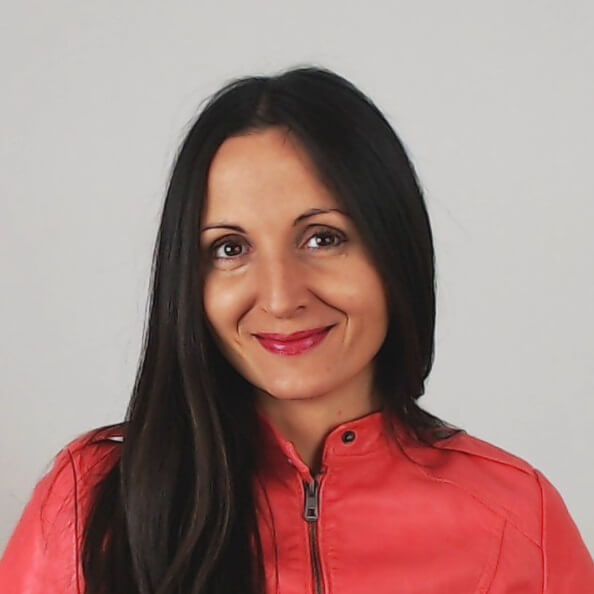How to Say Goodbye in Serbian
If you check how to say goodbye in Serbian in a phrase book or a dictionary, you’ll easily find the translation: “doviđenja”. But that’s hardly the only word we use when saying goodbye.
There are actually many expressions that we can say when parting with different people and in different situations, formal or informal. Just like we use many different expressions to say hello.
In this video I will teach you how to say goodbye in Serbian, in more than 10 ways.
You’ll learn what to say to your Serbian friends when leaving, and if you can say “Zdravo” both to greet them and to say goodbye. You’ll learn both formal and informal expressions we commonly use to say goodbye in Serbian.
Transcript:
What do you say to your Serbian friends when leaving?
Šta kažeš svojim prijateljima kada odlaziš?
Do you say zdravo both to greet them and as a goodbye?
You
Welcome to the Natural Serbian Course, the best place to learn real Serbian.
Zdravo svima! Ja sam Magdalena i danas ću vas naučiti 10 načina da se oprostite na srpskom.
I’m Magdalena and today I’ll teach you how to say goodbye in Serbian in 10 different ways
Let’s start from the most formal way of saying goodbye:
1) Doviđenja.
It actually means “until seeing (you next time)”. Sometimes another word is put in the middle of it, and we get do skorog viđenja, and it means “until I see you soon again”, but that’s mostly written in letters or emails, and it’s kind of obsolete, so we don’t really use it that much, but you can write it.
2) Prijatno
Doviđenja is usually combined with another word, with another formal farewell: prijatno, which means “pleasantly”. So, you can use it to say that something is pleasant: “Ovde je prijatno”, (it’s pleasant here). And we also use it to say “have a nice meal, bon appetit”: Prijatno!
It’s also used to say have a pleasant day/evening/whatever.
A tip is to combine these two words: Doviđenja, prijatno! When someone says “Doviđenja”, you can answer with “Doviđenja” or “Prijatno”, or you can combine them to “Doviđenja, prijatno” and be double-polite.
3) Zbogom
You might have seen zbogom in a book, but it’s old-fashioned and it’s not used nowadays. It means “may god be with you” or “travel with god”. If you use it, people will think that you’re leaving for good and never want to see them again, or that you’re extra religious. So, only if you want to sound like that, you can use “zbogom”.
4) Uzdravlje
If you have a chance to talk to old people, you can hear them use uzdravlje, or aj uzdravlje („to health, go to health, to our health“) as another old way of saying goodbye in Serbian. It is also another possible toast, in addition to živeli, which is in some regions also used as a farewell interjection. So, you can hear „uzdravlje“, „živeli“, „živeo“, „živio“ as a farewell as well.
Informal ways to say goodbye
5) Zdravo, ćao
In the previous video, you’ve learned zdravo and ćao. These are used informally both as hi and bye. However, when leaving, we tend to combine them with „aj“ (which is a word I will explain in one of my next videos). So, when leaving, we will say: Aj zdravo. Aj ćao.
6) Vidimo se
To finish an informal conversation with a friend or family, we can and often do say Vidimo se (see you, literally: we see each other), since we know that we’ll meet soon again.
7) Čujemo se
However, if we intend to talk to them on the phone first, we will say Čujemo se. It means: “we hear each other” or “I’ll talk to you on the phone”.
And these two are usually combined with any word telling time, such as večeras, sutra, prekosutra, kasnije, za vikend, u petak, i tako dalje (tonight, tomorrow, the day after tomorrow, later, on the weekend, on Friday, etc). There are plenty of combinations, whenever you plan to see or call someone, you can just say that day or date.
Čujemo se večeras! (talk to you tonight)
Vidimo se prekosutra! (see you the day after tomorrow)
Čujemo se večeras, pa se vidimo sutra. (talk to you on the phone tonight, and then see you tomorrow)
Both of these goodbye phrases are used also in the future tense, so you can say: čućemo se, videćemo se (we will hear each other, we will see each other).
8) Uživaj!
We also have an informal variant of „prijatno“, and that is: Uživaj! (for you singular) and Uživajte! (for you plural) It literally means „enjoy yourself“ or „enjoy yourselves“
Many times you will hear a combination of these phrases, so for example you will hear:
„Hej, aj ćao, čujemo se, uživaj!“
9) Laku noć
When we’re leaving late at night, we will always say Laku noć, formally and informally. In any kind of situation, „laku noć“ is safe to use. It follows shaking hands as well as a good-night kiss with your partner, so just use „laku noć“ whenever it’s late at night and you’re leaving to go to sleep.
Now, if you want to be nice and answer nicely to this phrase, you will say: Laku noć i lepo spavaj (good night and sleep tight/nicely).
10) And lastly, if you want to be mischievous a little bit and to make a joke, you can answer Jele te bube celu noć! (let the bugs bite you all night).
***
To summarize, we’ve learned 10 phrases you can say when leaving or parting with your friends in Serbia:
- Doviđenja
- Prijatno
- Zbogom
- Uzdravlje! Živeli!
- Aj zdravo! Aj ćao!
- Vidimo se, videćemo se
- Čujemo se, čućemo se
- Uživaj! Uživajte!
- Laku noć i lepo spavaj
- Jele te bube celu noć!
***
A ti? Kako se ti opraštaš od svojih prijatelja? How do you part from your friends?
And do you know how to greet your friends in different occasions? Learn 10 ways to say hello in this page.
by Magdalena Petrovic Jelic
Founder of Serbonika
Serbian language teacher and entrepreneur, language lover and polyglot, but also a mother and a relentless storyteller.
On a mission to create the best web space for learning Serbian: Serbonika.

Serbonika
Najbolja metoda za učenje srpskog jezika
The best method to learn Serbian
Easter in Serbia: Revealing the Diglossic Holiday
Easter in Serbia is a fun experience: cracking eggs and saying special greetings. Are you visiting Serbia for Easter Holidays? Learn how to greet your friends and family like a local!
Sretenje: Serbia’s Statehood day and a Sacred Meeting Day
A Christian holiday, but equally important for our history and folk beliefs. Find out why Sretenje is Serbia’s Statehood day and what it traditionally means.
Talk Serbian to Your Children! An Urgent Message to Diaspora
You speak Serbian, your spouse another language. Among yourselves you often communicate in that other language, or in a third language. And what will your child learn?
Vocabulary vs Grammar: A Fascinating Experience…
When you start learning Serbian, eventually you’ll face a vocabulary vs grammar dilemma. There is so much to learn. What to invest your time in: words or rules?





